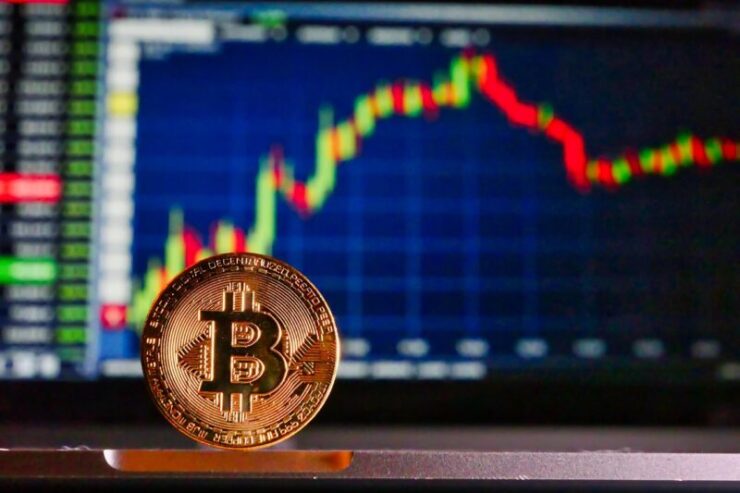Bitcoin has been a hot topic for over a decade, yet it remains one of the most misunderstood financial assets. From skepticism to sheer misinformation, myths about Bitcoin persist. In this article, we’ll debunk 15 of the biggest myths about Bitcoin to help you separate fact from fiction.
Despite the skepticism, Bitcoin continues to evolve, gaining traction across industries and mainstream financial markets. With institutional investors and large corporations embracing Bitcoin, its potential as a global financial asset is more evident than ever.
1. Bitcoin Has No Real Value
Many skeptics argue that Bitcoin has no intrinsic value. However, Bitcoin’s value comes from its scarcity, decentralized nature, and widespread adoption. Like gold, Bitcoin derives its worth from supply and demand rather than government backing.
2. Bitcoin Is Primarily Used for Crime – Myth or Reality?
While Bitcoin was once associated with dark web marketplaces, its primary use today is legitimate transactions, investments, and remittances. Major companies, including Tesla and Microsoft, accept Bitcoin, proving its mainstream acceptance.
3. Bitcoin Will Be Banned by Governments
Some fear that governments will outright ban Bitcoin. While regulations are being introduced worldwide, outright bans are unlikely because Bitcoin’s decentralized nature makes it difficult to control. Many governments are instead focusing on regulating its use.
4. Bitcoin Is a Ponzi Scheme
Unlike Ponzi schemes, which rely on new investors to pay returns to earlier ones, Bitcoin operates on a decentralized network without a central authority promising fixed returns. The market’s demand determines how much it is worth. Additionally, Bitcoin’s transparent, open-source code and decentralized nature make it fundamentally different from a Ponzi scheme.
5. Bitcoin Is Too Volatile to Be a Reliable Investment
Bitcoin’s price fluctuations are significant, but volatility is common in emerging assets. Over time, Bitcoin has demonstrated long-term growth, attracting institutional investors who believe in its potential. Historically, Bitcoin has outperformed traditional assets like stocks and gold over extended periods, proving its value as a long-term investment.
6. Bitcoin Transactions Are Completely Anonymous
Bitcoin transactions are pseudonymous, meaning that while wallet addresses are not directly linked to identities, all transactions are recorded on a public ledger. Authorities can track illicit transactions using blockchain analysis.
7. Bitcoin Can Be Easily Hacked
There has never been a breach in the Bitcoin network. The underlying blockchain technology is highly secure. However, individual wallets and exchanges can be compromised if users do not follow proper security practices. The key to security lies in using hardware wallets, enabling two-factor authentication, and keeping private keys secure.
8. Bitcoin Uses Too Much Energy and Is Bad for the Environment
Bitcoin mining does consume energy, but comparisons often fail to consider the environmental impact of traditional banking systems and gold mining. Additionally, many Bitcoin miners are shifting to renewable energy sources.
9. Bitcoin Will Be Replaced by Another Cryptocurrency
While thousands of cryptocurrencies exist, Bitcoin remains the most dominant due to its first-mover advantage, security, and widespread adoption. Other cryptocurrencies may serve niche purposes, but Bitcoin continues to lead.
10. You Must Buy a Whole Bitcoin to Invest
Many believe they need to buy a full Bitcoin, which can be expensive. In reality, Bitcoin is divisible up to eight decimal places, allowing investors to purchase fractions of a Bitcoin, making it accessible to all. Platforms like PayPal and Cash App allow users to buy as little as a few dollars’ worth of Bitcoin.
11. Bitcoin Is Only for Tech-Savvy People
While early adopters were tech enthusiasts, Bitcoin has become more user-friendly with exchanges, wallets, and payment services making it easier for everyday users to buy, store, and use Bitcoin. The rise of Bitcoin ATMs, mobile wallets, and educational resources has made Bitcoin accessible to people with little technical knowledge.
12. Bitcoin Transactions Are Slow and Expensive
While Bitcoin transactions can sometimes experience delays during network congestion, solutions like the Lightning Network are improving transaction speeds and reducing costs, making Bitcoin more efficient for daily transactions. Many exchanges and service providers also allow users to choose transaction fees based on urgency.
13. Bitcoin Is a Bubble Waiting to Burst
Bitcoin has experienced multiple price cycles, leading some to call it a bubble. However, each time Bitcoin has recovered stronger, demonstrating resilience and increasing adoption from retail and institutional investors. Bitcoin’s growing role as a hedge against inflation has also contributed to its sustained demand.
14. Bitcoin Is Not Secure for Storing Wealth
Bitcoin is considered one of the most secure ways to store value due to its decentralized nature and cryptographic security. However, users must follow proper security measures, such as using hardware wallets and secure passwords. Many long-term holders, known as “HODLers,” store Bitcoin in cold wallets for added security.
15. Bitcoin Will Eventually Go to Zero
Bitcoin’s value is driven by demand, adoption, and scarcity. With increasing institutional investment and mainstream acceptance, it’s highly unlikely that Bitcoin will lose all its value. Instead, it continues to grow as a digital store of value. Financial institutions, billionaires, and even national governments now recognize Bitcoin’s role in the global economy.
Conclusion
Bitcoin has long been shrouded in myths and misunderstandings, leading to confusion and skepticism about its true nature. As adoption grows, understanding the truth about Bitcoin becomes crucial for investors, businesses, and individuals.
By debunking these myths, we can appreciate Bitcoin’s role as a revolutionary financial asset and its potential in shaping the future of money. Whether you are a skeptic or an enthusiast, learning the facts about Bitcoin is essential in navigating the digital economy.





